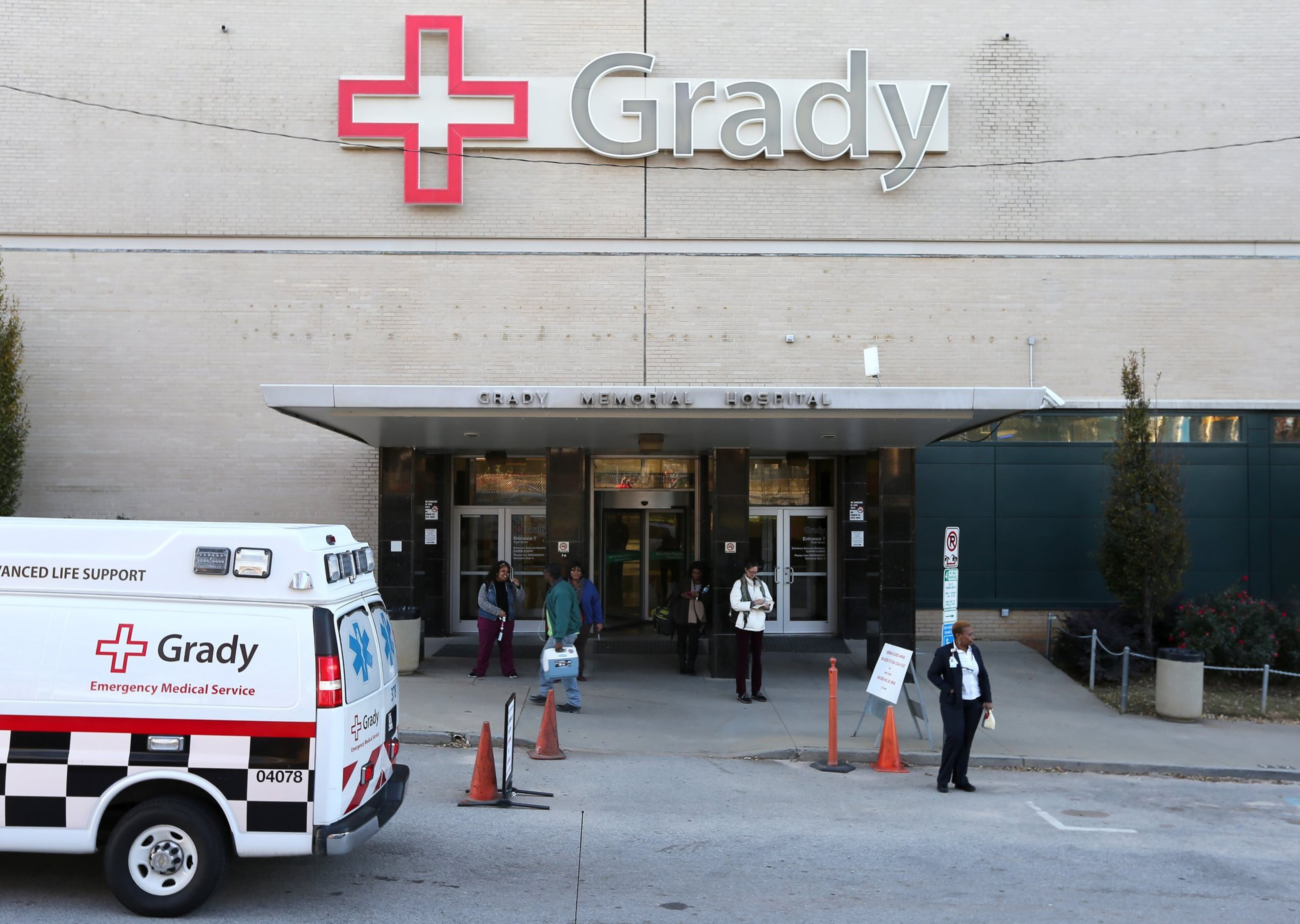Emory hospital diverts patients due to flooding at Grady
UPDATE: Emory Healthcare said at 5 p.m. Tuesday that it implemented an ambulance diversion for Emory University Hospital Midtown, meaning paramedics are being asked not to bring patients to that location. The hospital said it has seen a “high volume” of patients after Grady instituted a total diversion for its emergency room. Emory said it would still treat walk-in patients at its emergency department.
Grady Memorial Hospital, which advertises itself as the busiest trauma center on the East Coast, closed its emergency room on Saturday and scrambled to find beds in other hospitals for about 150 patients on three floors damaged by a burst water pipe.
Officials said it will take several months to repair the damage.
The emergency patients diverted away from Grady have strained other metro hospitals."Because Grady's emergency and trauma services have been and remain on diversion, other area hospitals have seen a marked increase in their patient volumes," the hospital said in a statement. Grady estimates that 697,000 patients come through its doors each year, or an average of 1,900 every day.
A 24-inch water pipe burst Saturday afternoon, causing a power outage in some areas and flooding on the sixth floor. Repairs to the pipe are complete, but the hospital suffered water damage on at least two other floors, according to a statement from hospital administration issued through a spokeswoman.
The electrical problems in the hospital should be fixed by Wednesday, officials said. One of the floors affected by the flooding is expected to reopen within a week. But the other two floors may not be operational for two to three months. The hospital has not said what caused the pipe to break.
With three floors awaiting repairs, Grady has instituted a “total diversion” of emergency patients, meaning paramedics are taking all emergency patients to other hospitals. The diversion is expected to be in place until at least Wednesday, the hospital said.

Grady did not say how many patients are being diverted, or what hospitals they are going to.
The hospital also has worked to transfer 150 of its 700 patients to other medical centers; many of those transfers have already been completed.
Piedmont Atlanta Hospital is “doing the best it can” to accommodate the 30 patients from Grady that it has received, a spokesman said in a statement. “Piedmont will continue to do its best to navigate its own capacity issues while helping a fellow community hospital and its patients to the best of our ability.”
Northside Hospital spokeswoman Katherine Watson said it planned to take in 25 Grady patients at its locations in Atlanta, Cherokee and Forsyth. Watson said that number could change because the situation is “fluid,” but that hospital staff will be able to “provide the care for all the patients coming our way.”
Emory Healthcare said it received patient transfers from Grady at many of its hospitals across Atlanta. “We continue to work with Grady to support the hospital, the patients they serve and our community during this time of need,” Emory said in a statement.
Grady is one of two hospitals in Atlanta certified by the state as Level 1 trauma centers, meaning it provides the highest level of emergency medical care. The other, WellStar Atlanta Medical Center, said it is receiving many trauma patients who would have otherwise gone to Grady, but did not say how many.
Guest visitation at Grady is also restricted while crews work to repair the damage, but the hospital has not provided details about those limitations.
The situation at Grady shows how a single incident can affect hospital operations for months and impact the medical landscape of an entire city. When Jim Allen’s hospital in Columbus, Ohio flooded in 2017, it took months to fully recover.
“When it happens at a hospital building, it’s a lot different than in an office building,” said Allen, the medical director at Ohio State East Hospital. “It’s not like you can work from home.”
The flooding in Columbus, a result of a corroded pipe on the second floor, caused water damage that totaled more than a million dollars, according to Allen.
When hospitals flood, Allen said, it is critical that crews focus on drying floors, walls and ceilings as quickly as possible, to stop infections from developing.
“You have to make sure that any water is eliminated really quickly, before you get mold growth,” he said. Allen said an infection control official stayed in the building all night long after the pipe burst.
The lesson Allen learned from the watery ordeal? It’s impossible to predict the future, but doing regular disaster drills help hospitals prepare for the unknown, he said, “even if the disaster you face isn’t the one you practiced.”
This story has been updated to include a statement from Emory Healthcare.



